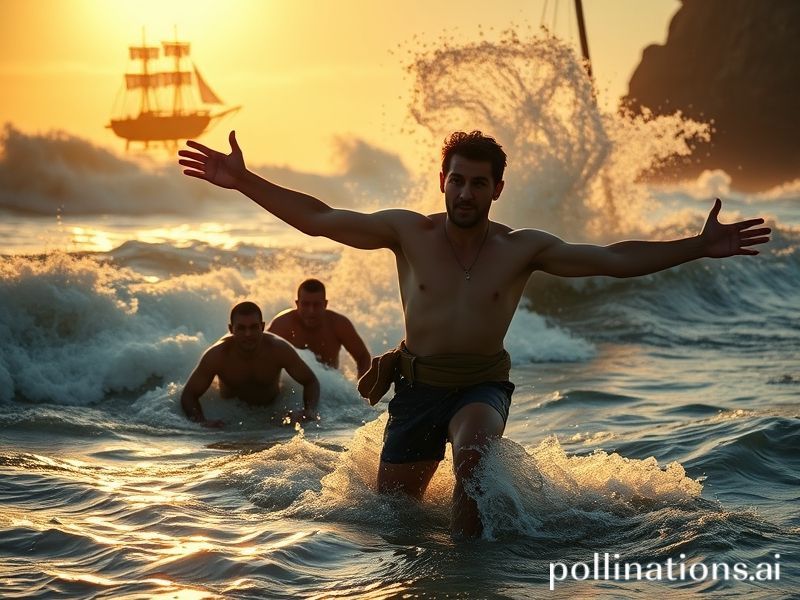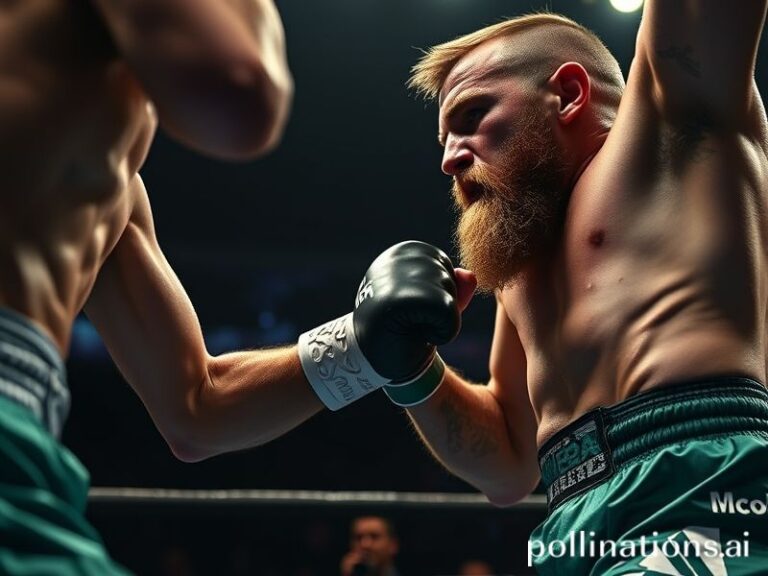Woltemade Rides Again: How One Dead Horseman Became the World’s Most Overworked Moral Currency
The Last Good Man Is Dead—Again
by Correspondent-at-Large, Dave’s Locker, 12 June 2024
CAPE TOWN—Every country keeps a folk hero in the attic like a moth-eaten flag, ready to be unfurled whenever the national conscience needs a good dry-cleaning. South Africa’s particular antique is Wolraad Woltemade, a retired dairy employee who, on 1 June 1773, rode his horse into a churning Table Bay to rescue sailors from the foundering De Jonge Thomas. Eight trips later, both man and horse were dragged under by the panicked grasp of the very people he was saving. A statue still stands where the shoreline used to be before the land reclamation guys got trigger-happy with the bulldozers; today it’s less a monument than a traffic island for Uber Eats scooters.
The rest of the planet has its own versions: Japan’s 47 Ronin, America’s Chesley “Sully” Sullenberger, that Finnish bloke who hacked through lake ice with an axe to save a moose. All share the same narrative arc: ordinary human does extraordinary thing, dies or retires quietly, gets minted into moral currency. Central banks of virtue then spend the story lavishly whenever inflationary cynicism threatens the civic economy.
Global implications? Start with supply-chain ethics. In an age when “Made in China” competes with “Influenced by China,” heroism has become a scarce export commodity. The Woltemade myth is essentially a non-renewable resource, like Arctic oil or bipartisan cooperation. Each retelling depletes it, yet no G20 summit has proposed a strategic reserve of altruism. Instead, we get commemorative NFTs and a Netflix limited series where Woltemade is reimagined as a gender-fluid climate activist with a TikTok following.
Speaking of platforms, note how the story mutates online. Russian bots once circulated the tale to illustrate “Western individualism drowning under collectivist panic.” German meme pages Photoshopped Woltemade’s horse into a Bundeswehr tank rescuing asylum seekers, depending on which side of the AfD polling spike you checked. Meanwhile, in Seoul, schoolchildren uploading reaction videos to the 1960s children’s song “Woltemade, Woltemade, Ride to the Waves” accidentally triggered the algorithmic resurrection of apartheid-era state propaganda. The algorithm, like the horse, eventually tires and sinks.
Economists at the IMF recently ran the numbers: a single verified act of self-sacrifice adds 0.03 percentage points to global soft-power GDP, roughly the same bump a nation gets from hosting Eurovision or bribing FIFA. The catch: the act must be pre-internet, so no pesky livestream contradicts the hagiography. Woltemade therefore remains a blue-chip brand, untarnished by cellphone footage of him pocketing shipwrecked guilders between rescues.
Climate change, ever the party pooper, has relocated the moral theatre. Cape Town’s droughts have turned Table Bay into a tepid puddle; future heroes will have to wade rather than swim, which lacks cinematic heft. The UN’s upcoming “Heroism Offset Program” proposes that for every citizen who live-streams a good deed, a matching micro-donation funds someone in the Sahel to dig a well. Early trials show the scheme works until the influencers discover the wells make lousy backdrops for ring-light selfies.
And yet, the most poignant footnote hides in plain sight on the bronze plaque: “He could not swim.” That line, unread by most tourists busy framing Instagram stories, is the punchline humanity deserves. A man plunges headfirst into chaos armed only with a horse and a moral certainty the water will respect brand loyalty. Spoiler: it didn’t. The drowned sailors, the exhausted horse, and the undertaker’s invoice were the only receipts.
Conclusion: Every era gets the folk hero it can monetise. Woltemade’s ghost now competes with deepfakes, ESG scores, and the latest celebrity apology video. The global takeaway? We still crave the story of one good idiot on horseback, even as we automate the horse and outsource the idiot to the gig economy. So light a candle—preferably soy, sustainably sourced—at the base of his statue. Then order bubble tea through an app named after him. The horse is dead; long live the brand.







